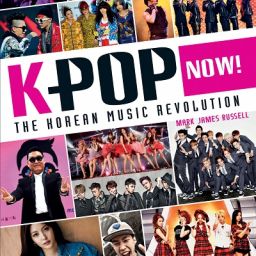As part of a discussion of viral marketing on Cinema Blend, an unwarranted swipe was made towards (generally) female experiences of fandom, while praising (generally) male experiences of fandom:
“passionate fandom,” [is] something that happens when people get together to geek out about what they love, whether it be at conventions or through computer screens. Passionate fandom can be a great thing, after all, without passionate fandom, we wouldn’t have a real Klingon alphabet (complete with a translated version of Shakespeare’s Hamlet) or a Serenity movie, or a second season of Jericho. … those are fantastic examples of what fandom can do. Unfortunately passionate fandom also gives us Aliens vs. Predator: Requiem, Harry Potter fanfic, and pornographic images of Legolas and Aragorn captured in an intimate embrace. Passionate fandom has its ugly downside just as much as it has its good side, and we can’t blame that on viral marketing.
“Geeking out about what you love” can take many forms, so why create huge negative gender-based generalizations? Leaving aside AVPR (which no fan should be blamed for!), the above stated negative aspects of fandom, Harry Potter and Lord of the Rings fanworks, including slash, are types of fandom belonging primarily that of girls and women. I have always been puzzled by the way many male fans choose to insult female experiences of fandom as a way of validating their own experience of fandom.
Why is the stereotype of the fan as the obsessive collector-type, like Comic Book Guy from the Simpsons someone to be venerated as a positive example of “passionate fandom”? Yet female fans who focus on relationships as part of their fandom are viewed as not somehow not being true (or proper) fans. This doesn’t mean that all fanworks are good (they are so not), but I wouldn’t view that as an “ugly downside.” Or at least no more so than playing D&D post-college. (just joking).
The article does mention the creation of the Klingon alphabet as a positive aspect of passionate fandom, but misses out on the even larger aspect of passionate fandom of Star Trek — that male and female passionate fans kept Star Trek alive between the end of the TV show and the first movie. And therefore pre-viral marketing and the internet, created a community that brought something back from near commercial extinction. While some male fans might want to put their hands in their ears, part of what kept Star Trek alive while official works weren’t being made was female fan production, including vidding and fanfic (including slash). After all, “slash” was named after the fic based on the relationship between Kirk and Spock (discussed by Henry Jenkins here and here and shown in the clip above).
For more about fandom and gender check out discussions here, here, and here.




[…] Why should she feel the need to defend her fannishness? Is it because she doesn’t fit the stereotype of who a fan should be — by being an African-American […]
[…] inclusion in their fandom based on race/ethnicity or gender is problematic, and the use of “true fandom” language is often used to […]
[…] girls and women who are interested in male-dominated fandoms. But Gidget begins the story on passionate fandom – why female metalheads mosh, girl gamers guild, and other tales of belonging through […]